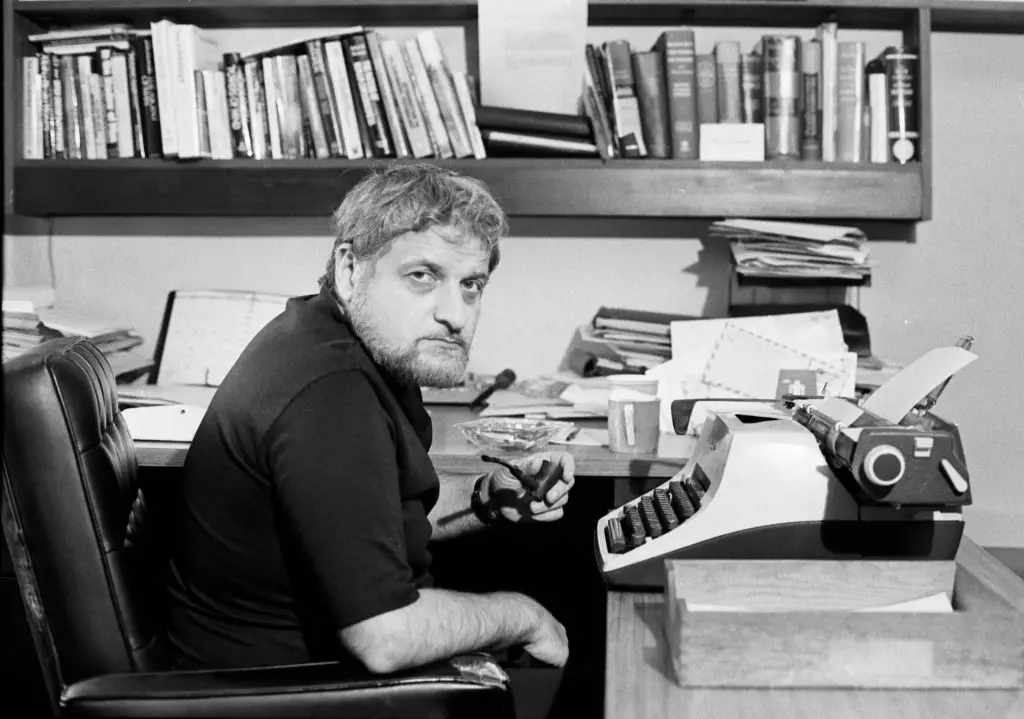In an era where storytelling has become increasingly commodified, the recent alliance between International Literary Properties (ILP) and Simcha Productions marks a bold step toward preserving and elevating the timeless voice of Paddy Chayefsky. This partnership isn’t merely about acquiring rights; it’s a strategic move to reignite interest in one of America’s most influential writers whose work boldly challenged societal norms and prefigured today’s media landscape. By focusing on Chayefsky’s extensive oeuvre—spanning theatre, television, and film—ILP aims to redefine how contemporary audiences connect with classic narratives and ideas rooted in human complexity.
This collaboration signals a deeper recognition of Chayefsky’s relevance, particularly as his works demand fresh interpretations in a rapidly changing cultural climate. His ability to dissect societal flaws with sharp wit and profound empathy remains astonishingly prophetic. Far from being relegated to the past, Chayefsky’s legacy becomes a living dialogue that invites new generations to question, critique, and imagine a better society.
Why Paddy Chayefsky’s Work Surpasses Time
Chayefsky’s genius lies in his unflinching exploration of the human condition amid the chaos of modernity. His iconic screenplay for *Network* is as politically charged and brutally honest today as it was when released in 1976, critiquing media excess, corporate greed, and social apathy. This screenplay’s prescience underscores why Chayefsky’s work remains vital; it serves as a mirror held up to society’s ongoing struggles with truth, power, and authenticity.
Moreover, his television dramas and stage plays, such as *The 10th Man* and *Gideon*, reveal a playwright attuned to moral and philosophical dilemmas. They challenge audiences to confront uncomfortable realities about human vulnerability and societal failure. The fact that his work continues to be adapted and staged, such as the successful *Network* revival starring Bryan Cranston, affirms that his voice strikes a universal chord, transcending the medium and era of his original creation.
However, one must be critical of how easily such legacies risk commercial exploitation. The partnership’s success hinges on genuine artistic stewardship rather than mere nostalgia-driven profit. Given ILP’s track record of elevating literary estates, there’s growing hope that this collaboration will prioritize creative integrity. The challenge remains whether modern filmmakers, playwrights, and producers will have the depth and vision to honor Chayefsky’s incisiveness without diluting its potency.
Strategic Revival or Cultural Commodification?
The broader debate surrounding such partnerships often focuses on the fine line between cultural preservation and commodification. While ILP’s mission to bring classic works to global audiences is admirable, there will always be a risk of diluting the original message for mass consumption. With the entertainment landscape inundated by sequels, remakes, and reboots, Chayefsky’s work could easily become just another nostalgic property if handled without authenticity.
Yet, this predicament also presents an opportunity. If managed with intellectual honesty and artistic depth, Chayefsky’s stories could serve as catalysts for meaningful conversations about modern societal issues. Whether it’s through a new film adaptation of *Network* that critiques today’s media landscape or a stage production that explores contemporary alienation, there’s vast potential for relevance.
The involvement of Chayefsky’s son, Dan Chayefsky, signals a promising commitment to respecting the creator’s vision. His endorsement suggests that this partnership isn’t just business; it’s a heartfelt effort to ensure that the complexities and social critiques embedded in Paddy Chayefsky’s work are preserved, not simplified.
A Personal Reflection on a Literary Pioneer
In critical terms, an enduring debate is whether the literary and artistic estates of influential creators truly serve their original intent or merely become pawns in corporate portfolio expansion. Paddy Chayefsky’s legacy deserves more than just rights management; it warrants active cultivation of his thematic concerns. His work’s resilience lies in its fearless examination of societal hypocrisies—an aspect that demands careful stewardship to ensure it resonates authentically with contemporary audiences.
Furthermore, contemplating his influence raises questions about the role of art in societal critique. Chayefsky’s work exemplifies how storytelling can be a powerful weapon against complacency. As the cultural landscape continues to evolve, the onus is on entities like ILP and producers to foster projects that challenge audiences rather than lull them into comforted ignorance.
The renewed focus on Paddy Chayefsky’s oeuvre isn’t merely a business venture; it’s an act of cultural stewardship. How well this partnership navigates the fine balance between honoring artistic integrity and achieving commercial success will determine whether his voice remains a relevant force for social introspection or is reduced to a nostalgic echo. This moment offers a unique chance to rekindle one of America’s most incisive writers and ensure that his legacy continues to provoke, inspire, and challenge for generations to come.
